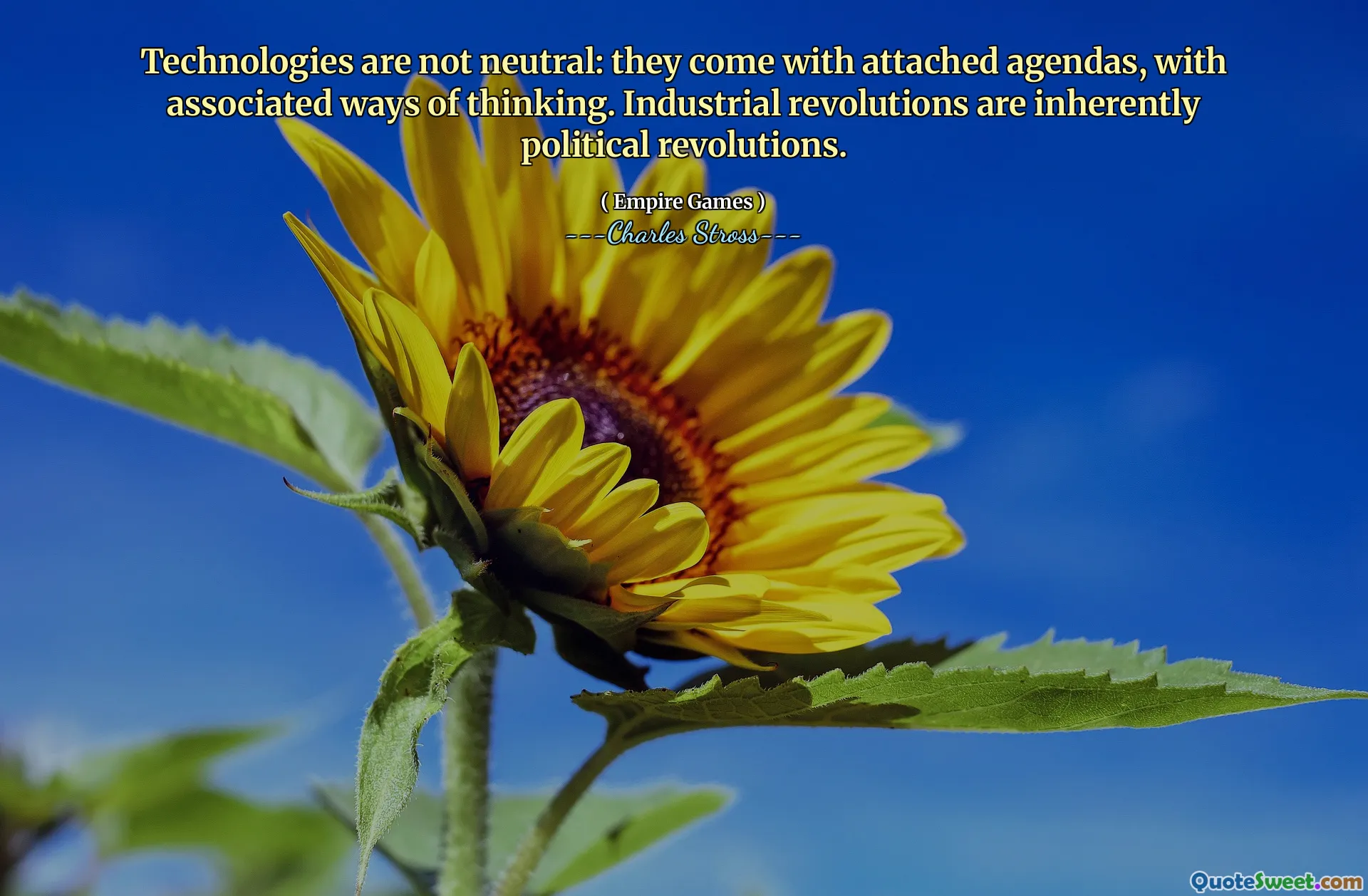
Technologies are not neutral: they come with attached agendas, with associated ways of thinking. Industrial revolutions are inherently political revolutions.
This quote highlights the inherently intertwined nature of technology and politics, emphasizing that technological advancements are never isolated from societal influences and power structures. When we think about tools and innovations, it's tempting to see them as neutral entities designed simply to serve human needs. However, the reality is far more complex. Technologies embody the values and priorities of the societies that create them, and they often carry implicit biases or agendas. For example, the early industrial revolution was not just about mechanization and increased productivity; it fundamentally altered social classes, labor systems, and economic power distributions. Technologies then and now influence how people think, behave, and interact, often reinforcing existing inequalities or, alternatively, offering paths for emancipation. Recognizing that technological change is inherently political challenges us to consider the broader implications of innovation, including whose interests are prioritized and who may be marginalized. This perspective urges us to examine the social and political contexts in which new technologies emerge and evolve, rather than viewing technology as a purely technical development detached from human values. As we innovate in fields like artificial intelligence, surveillance, or biotechnology, it becomes vital to ask: who benefits? who might be harmed? and how will these technologies shape future social arrangements? Ultimately, understanding that industrial revolutions are political revolutions underscores the importance of deliberate, inclusive decision-making in technological development and adoption, so that innovations serve the collective good rather than unchecked power.






